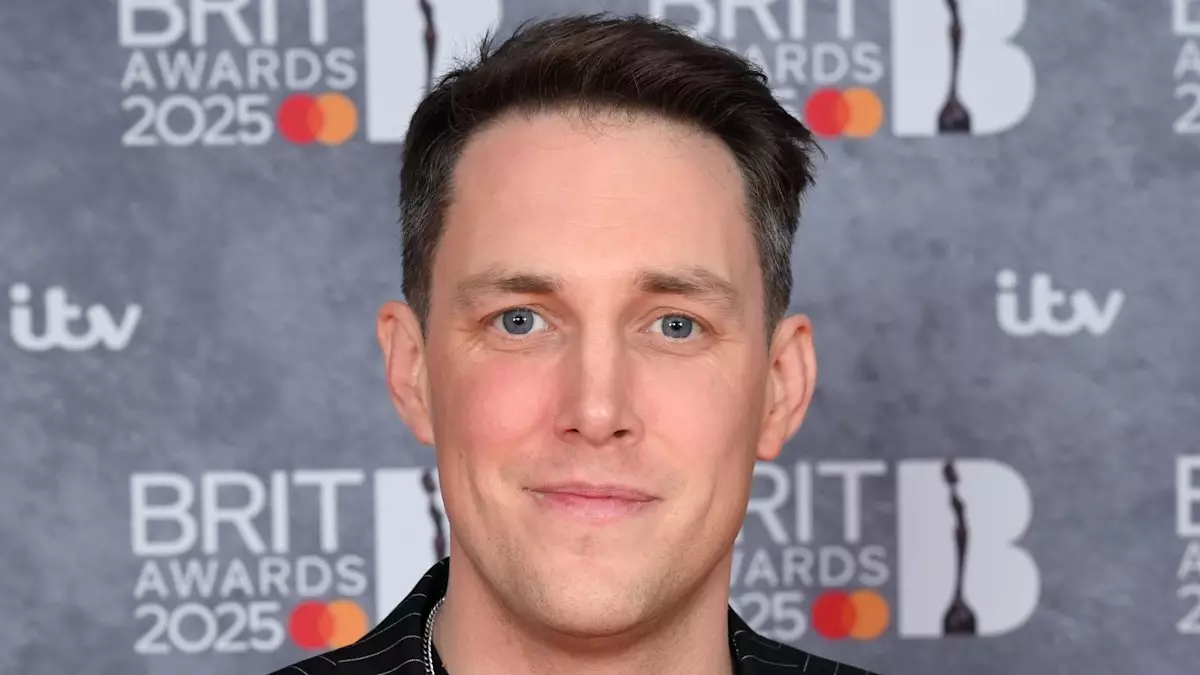Chris Stark, a prominent radio DJ known for his charismatic presence on Capital’s Breakfast show, has recently brought a deeply personal struggle to the public eye by revealing his testicular cancer diagnosis. In an unvarnished Instagram post, Stark shared the news that he was diagnosed following a routine doctor’s visit just a couple of months ago. This disclosure serves as more than just a health update; it stands as a rallying cry for men everywhere who often sidestep health checks and preventative measures. Stark’s announcement has ignited a flurry of support and dialogue, highlighting the intersection of personal health and public advocacy.
The reality of Stark’s experience underscores a critical truth: testicular cancer, which most commonly strikes men between the ages of 15 and 49, is often treatable when caught early. Stark’s readiness to be open about his journey from hospital visits to surgery is commendable, as it brings an essential but frequently neglected issue into sharper focus. The hesitancy many men have about discussing their health, particularly regarding topics like prostate and testicular health, can create barriers to early detection and treatment. Stark’s bravery cuts through that hesitation, reminding us that vulnerability can lead to empowering conversations.
Breaking the Silence on a Stigmatized Topic
Stark himself acknowledges the stigma surrounding discussions of male genital health. His candidness—stating he feels foolish for not noticing the signs sooner—reveals a vulnerability that many can relate to. Why is it that discussions surrounding male health, especially those involving intimate issues like testicular cancer, are often relegated to whispers or, worse, silence? Stark’s intent to spark dialogue encapsulates a growing movement that emphasizes the importance of normalizing health checks among men. By publicly confronting his diagnosis, he is not only educating his audience but challenging societal norms that have long rendered such topics taboo.
In an era where mental health discussions are increasingly common, one might wonder why physical health—specifically male health—remains shrouded in embarrassment. Stark’s call to action aims to embolden others to prioritize their health by advocating that men take ownership of their bodies, conduct self-checks, and seek medical advice without the shame or stigma that may come with it. His efforts show that even a well-known figure in popular culture can face the realities of health challenges while urging others to adopt proactive attitudes, proving that awareness can sometimes begin with a single voice willing to share their battle.
An Outpouring of Support and Solidarity
The collective response to Stark’s announcement has been nothing short of inspiring. Fellow radio hosts, celebrities, and fans flooded the social media comments with messages of support, emphasizing the relief many felt knowing he caught the illness early. Not only do these messages bolster Stark’s spirit, but they also illustrate how shared experiences can foster solidarity within the community. The encouragement from figures like Scott Mills and Clara Amfo reflects an evolving cultural acknowledgment of the power of vulnerability in navigating personal health crises. Their words resonate with not just Stark but also the countless men grappling with similar fears.
Stark’s intentions extend beyond merely sharing his diagnosis. His aim is to motivate men to prioritize their health, prompting those who might otherwise ignore symptoms to take a proactive approach. The act of reaching out for medical help is often perceived as a sign of weakness, yet Stark’s journey proves it is a hallmark of strength. By shining a light on the importance of early detection in achieving successful recovery, Stark is playing a pivotal role in altering narratives while potentially saving lives.
Personal Triumph and Future Aspirations
As he recovers and prepares to return to the airwaves, Stark’s journey emphasizes hope and resilience. His gratitude towards family, friends, and medical professionals showcases an understanding that one’s health is interwoven with a supportive network. The excitement he expresses about resuming his broadcasting career post-recovery further accentuates the potential for life to continue moving forward after adversity.
What Stark has done transcends personal storytelling; it provides a platform for advocacy, encouraging others to be vigilant about their health and to foster openness in what can be life-saving discussions. In an age defined by social media, where voices can often be drowned out by the noise, Stark’s persevering message stands tall—reminding us that taking care of ourselves and each other is not merely advisable, but essential.

